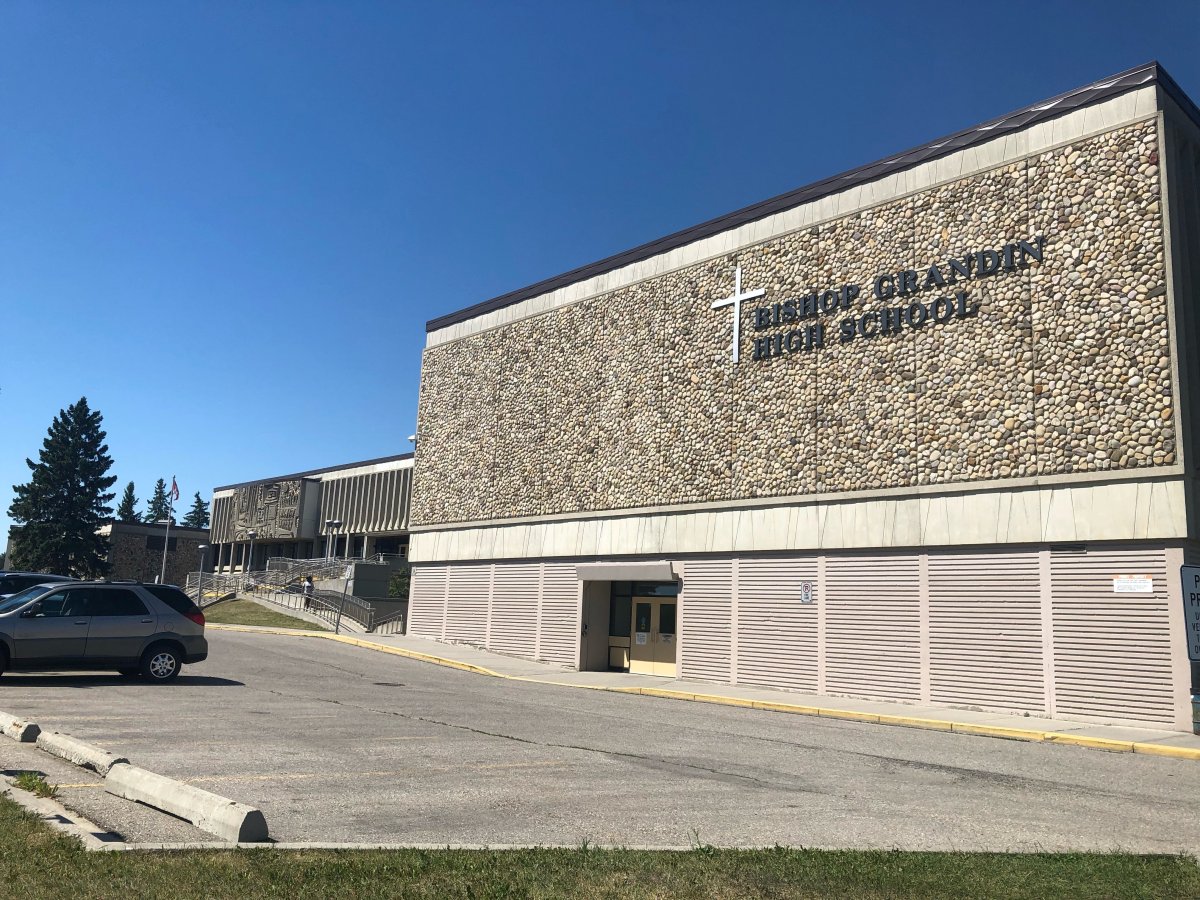A Calgary Catholic high school that came under fire for its name following the discoveries of unmarked graves near the sites of Indian residential schools has a new moniker.

Bishop Grandin High School will now be called Our Lady of the Rockies High School, following a vote from the Calgary Catholic School District’s (CCSD) board of trustees on Wednesday.
“The beauty of this name, Our Lady of the Rockies, is that it’s important for an institution of faith to have that tone to it,” board chair Mary Martin told Global News.
“But the Rocky Mountains are also particularly important to our Indigenous communities as well. It’s a source of resources that they use, a source of medicine, and this name has a great deal of importance to our Indigenous community, which makes it a perfect fit.”
In the meantime, the school changed its name to Haysboro Catholic High School after a June 28 motion passed.
The CCSD said “extensive consultations and community gatherings” were hosted with members of the Indigenous community like Elder Wanda First Rider, parish representatives, parents, students and staff.
Martin said the goal was to “move authentically with the principles of the Truth and Reconciliation Commission.”

Get daily National news
Our Lady of the Rockies was selected from five possible replacement names via a 1,000-person survey. A renaming ceremony will be planned for the school.
The trustee chair added that the school division’s truth and reconciliation process is ongoing and is one of four division priorities.
The move comes a week after Edmonton’s Grandin School was renamed Holy Child Catholic Elementary School.
One Dene activist and member of Calgary’s Reconciliation Action Group was happy to hear about the name change.
“I am really happy to know that they’re renaming Bishop Grandin (High School), because Bishop Grandin was one of the most devastating folks when it came to Indian residential schools, and, of course, to Indigenous people as a result,” Michelle Robinson said.
Robinson said acknowledging Grandin’s role in the Indian residential school system was an “important step for truth and reconciliation.”

“These efforts are important because we can’t create safe spaces for Indigenous people to be in if they are constantly reminded of the very people who perpetuated genocide upon us,” she told Global News, noting similar name changes nationwide.
Bishop Vital-Justin Grandin, who the school was previously named for, “led the campaign for residential schooling,” according to the final report of the Truth and Reconciliation Commission of Canada (TRC).
According to the National Centre for Truth and Reconciliation, Canada’s Indian residential school system was in place for more than 150 years, and more than 150,000 children attended.
The TRC’s final report conservatively estimated between 4,000 and 6,000 children died at residential schools.
Martin acknowledged the need to be educated about history involving people like Grandin.
“In conversation as a board with our chief superintendent, it becomes imperative to look at all aspects of our history as a Catholic institution,” she said. “And that involves taking a look at some of the more challenging aspects of our past.”
“We’ve only had days since… the very first National Day for Truth and Reconciliation,” Robinson added. “This is important work that we are trying to correct 150 years of wrong on.”
–with files from Kaylen Small, Global News








Comments